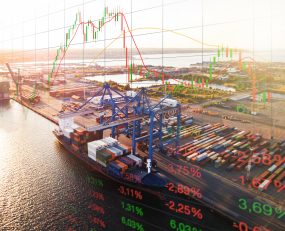
Such has been the inflation in container freight rates that it is becoming a political issue.
In the US, the Federal Maritime Commission on August 4, said that it had started “an expedited inquiry into the timing and legal sufficiency of ocean carrier practices with respect to certain surcharges.” The reason that the “action was taken [was] in response to communications received by the Commission from multiple parties reporting that ocean carriers are improperly implementing surcharges. The companies contacted are CMA CGM, Hapag-Lloyd, HMM, Matson, MSC, OOCL, SM Line; and Zim. Each ocean carrier was identified as having recently implemented or announced congestion or related surcharges”.
It is unknown if this action by the Federal Maritime Commission is linked to a complaint made to the Commission by a furniture company, MCS Industries, against Mediterranean Shipping Company suggesting attempts to increase freight rates on the spot market.
In the UK, the business lobbying organisation, the British Chambers of Commerce has written to the Competition and Markets Authority supporting the idea of a “formal investigation” into the container shipping market. The Competition and Markets Authority is informally looking into the issue.
Logistics companies should be nervous about this. The present political climate seems to favour interference in markets and some attempt at price control cannot be ruled out. As higher prices spread beyond the spot market and into longer-term contracts, the pressure will grow. How effective such price control would be, is a good question. It is undeniable that higher prices are in part being driven by a shortage of capacity caused both by too few ships and inefficient utilisation of port and container capacity due to asymmetric trade patterns. Whether this is being exploited by the shipping companies is unclear, however, it is worth noting that they feel confident in their ability to force through various forms of price rises, something which several years ago they would not have been. This is undoubtedly influenced by the consolidation in the shipping sector.
Bearing in mind the delays in delivering more ships will mean that the market will be short of capacity for many months yet and that demand moving into the peak season may be quite strong, matters might become even more fraught.
Source: Transport Intelligence, August 12, 2021
Author: Thomas Cullen